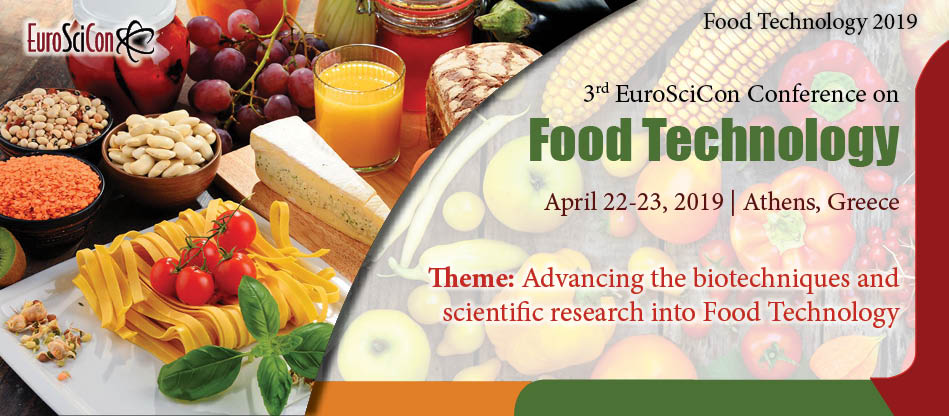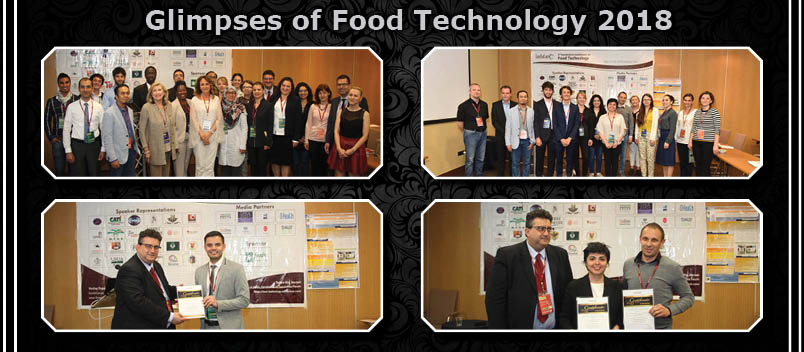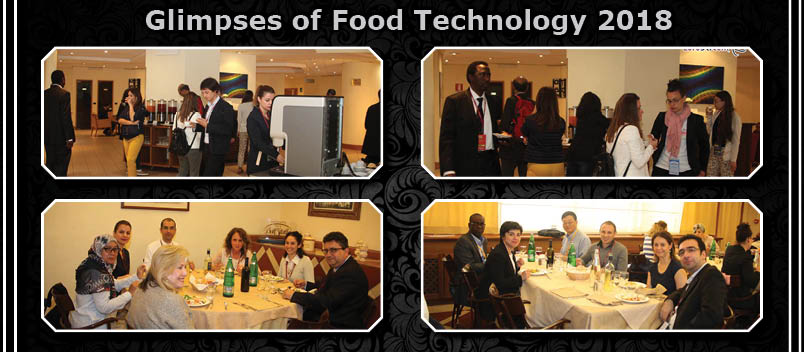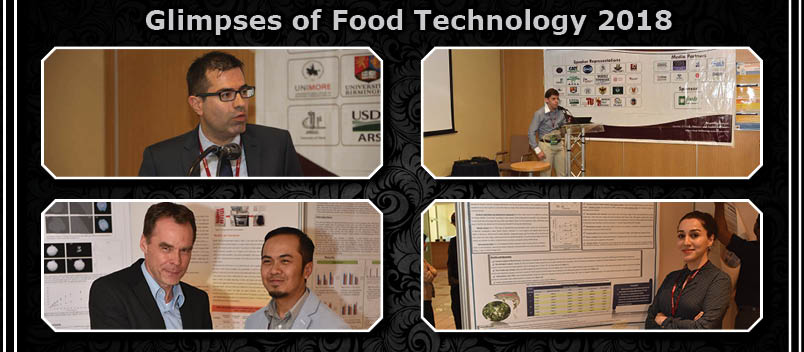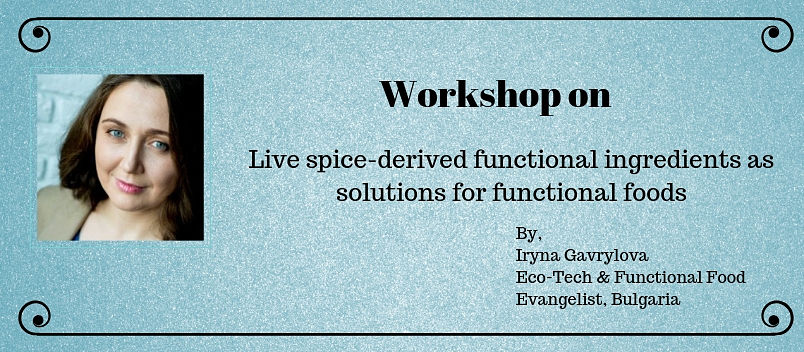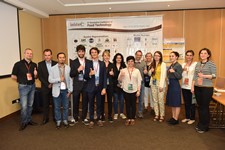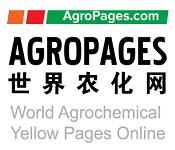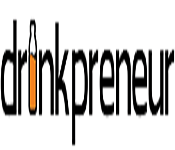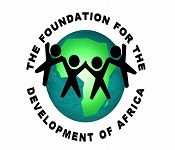Food Technology 2019
About Conference
Theme: Advancing the bio techniques and scientific research into Food Technology
EuroSciCon organizes the 3rd Edition of Food Technology conference and this time it focuses on the advancements in the techniques and researches that are going on in the field of Food Technology. It is mandatory to know about the advancements in the field as in the present scenario researches on Food technology will have greater impact on food sufficiency and quality. The demand for food and with increasing diseases it is better to know of the improvements in the field. We invite Researchers, Food Technologists, Nutritionists, Microbiologists, Agriculturists and Industrialists to discuss the advancements in the field. The conference will be a platform to present your research and to show your innovatins in food technology. The conference is to be on April 22-23, 2019 in Athens, Greece. Students are also invited to attend the conference and gain the knowledge about researches in food technology.
What’s New
Food Technology 2018 includes international attendee, workshops, lectures and symposia including a designated registration area, a refreshment break and gala lunch. Food Technologists and Nutritionists can join the EuroSciCon as an international member to receive discounts on registration. So come and join leading experts and allied professionals from April 22-24, 2018 in Athens, Greece to discuss the ways to develop better technologies that will aid in the development of food science and technology.
About Athens
Athens is the capital and largest city of Greece. Athens is a global city and one of the biggest economic centers in southeastern Europe. It has a large financial sector, and its port Piraeus is both the largest passenger port in Europe and the second largest in the world. The heritage of the classical era is still evident in the city, represented by ancient monuments and works of art, the most famous of all being the Parthenon, considered a key landmark of early Western civilization. The city also retains Roman and Byzantine monuments, as well as a smaller number of Ottoman monuments. Athens is home to two UNESCO World Heritage Sites, the Acropolis of Athens and the medieval Daphni Monastery. Athens is also home to several museums and cultural institutions, such as the National Archeological Museum, featuring the world's largest collection of ancient Greek antiquities, the Acropolis Museum, the Museum of Cycladic Art, the Museum and the Byzantine and Christian Museum. The city is a world center of archaeological research. Along with national institutions, such as the Athens University and the Archaeological Society, there are multiple archaeological Museums including the National Archaeological Museum, the Cycladic Museum, the Epigraphic Museum, the Byzantine & Christian Museum, as well as museums at the ancient Agora, Acropolis and Kerameikos.
Opportunities for Conference Attendees
For Researchers &Faculty:
- Speaker Presentations
- Poster Display
- Symposium hosting
- Workshop organizing
For Universities, Associations & Societies:
- Association Partnering
- Collaboration proposals
- Academic Partnering
- Group Participation
For Students & Research Scholars:
- Poster Competition (Winner will get Best Poster Award)
- Young Researcher Forum (YRF Award to the best presenter)
- Student Attendee
- Group Registrations
For Business Delegates:
- Speaker Presentations
- Symposium hosting
- Book Launch event
- Networking opportunities
- Audience participation
For Companies:
- Exhibitor and Vendor Booths
- Sponsorships opportunities
- Product launch
- Workshop organizing
- Scientific Partnering
- Marketing and Networking with clients
Past Conference Report - Food Technology 2018
2nd EuroSciCon Conference on Food Technology (Food Technology 2018) hosted by EuroSciCon Ltd took place at Holiday Inn Aurelia in Rome, Italy during May 14-16, 2018. It was organized by EuroSciCon Ltd and generous response was received from the Editorial Board Members of EuroSciCon Ltd Journals as well as from eminent scientists, talented researchers, and young student community. Researchers and students who attended from different parts of the world made the conference one of the most successful and productive events in 2018 from EuroSciCon Ltd. The three-day program witnessed thought provoking keynote and plenary presentations from experts in the field of Food Technology and Nutrition highlighting the theme, "Optimizing food and nutritional demands with the help of recent technologies ".
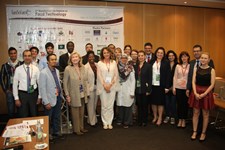
The meeting was carried out through various sessions, in which the discussions were held on the following major scientific tracks:
- Agriculture
- Fish farming
- Bioprocess Engineering
- Food processing
- Food safety
- Food preservation
- Food chemistry
- Food synergy
- Food engineering
- Food microbiology
- Engineered microbes
- Food additives
- Bioprocess Engineering
- Nutrition
- Enzymology
- Nutrition Therapy
- Food and human health
- Dietetics
- Veterinary Science
- Food safety and Hygiene
- Food packaging
- Food quality standards
- Impact of processing on nutritional quality of foods
- Foodborne diseases and treatment
- Food waste management
The highlights of the meeting were form the eminent keynote lectures from
- Sandra Poirier, USA
- Ondulla Toomer, USA
- Marco Pellegrini, Italy
- Rob te Bieseke, Switzerland
- Massimo Zonca, Italy
- Yiannis Kourkoutas, Greece
Food Technology 2018 played an important role in promoting multidisciplinary interactions between science and technology to enhance research in Food Technology and Nutrition. The program covered current and emerging research innovations in the field of Food Technology and Nutrition.
We would specially thank the Moderators of Food Technology 2018 Clara Balsano, Italy and Daniel Laguado, Columbia for their contribution to the conference.
We are obliged to the various delegates from companies and institutes who actively took part in the discussions. We sincerely thank the Organizing Committee Members and Editorial board of Food Technology 2018 for their gracious presence and continuous support throughout the proceedings of this event. With the valuable feedback and generous response received from the participants of the event, EuroSciCon Ltd would like to announce the commencement of "3rd EuroSciCon Conference on Food Technology" during April 22-23, 2019 at Athens, Greece.
Let us meet again @ Food Technology 2019
Session and Tracks
SESSIONS AND TRACKS
Food technology is a science that deals with the production of food. Food based research helps in ensuring the quality and safety of food products. Technologists work to improve manufacturing methods, preserve and store foods effectively and involve in new product development. Various quality analysis procedures are carried out to make food safe in the hands of consumers. It involves conversion of food into a more palatable form and makes it easier to digest. Food technology is a vast field that includes streams like agriculture, aquaculture, food processing, food engineering, food microbiology, bioprocess engineering, food chemistry, food safety, nutrition and diseases caused by food.
Track 1: Food Innovations
The concept of food innovation has been tossed around food companies with growing regularity in recent years. Most of the time, the term” innovation” is associated with new product development, but innovation can be applied equally well across corporate marketing, operations, quality assurance, food safety disciplines. No matter where innovation is applied, it always yields true value to the companies who embrace it properly and apply it to various departmental functions.
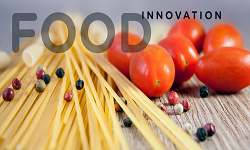
Track 2: Agriculture and its products
Agriculture is the science of cultivating plants, crops and raising animals for food and other benefits to humans. It is most important occupation in many countries and is the source for various industries. Researchers are continuously involved in identifying new techniques in farming to increase the crop yield within a specific time. Since there is a decrease in land for cultivation, introduction of effective techniques is the need of the hour.
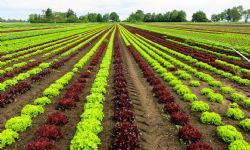
Track 3: Meat production
The livestock sector has been undergoing fast pace over the last few years. The increasing demand for food derived from animals has led to large increases in livestock production, supported by major technological innovations and structural changes in the sector. This rising demand has been mostly met by commercial livestock production and associated food chains. At the same time, millions of rural people still keep livestock in traditional production systems, where they support livelihoods and household food security.

Track 4: Fish farming and fish products
Fish farming means, raising fish commercially in tanks, ponds or other enclosures for the purpose of producing food. Commercial fish farming has already established as a profitable business venture throughout the world. Fish is a great source of food and protein. The demand and price of fish and fish related products are also increasing rapidly, in accordance with rapid population growth. This is the main reason of increasing this business around the world. Almost all countries around the world are somehow suitable for fish farming business. But the countries with coastal areas are very suitable for this business. There are many areas, where fish farming business is the only way of livings for the people.
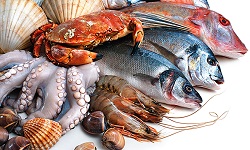
Track 5: Food processing
Food processing is the conversion of the raw ingredients into a consumable product using physical, chemical and biological means to increase its flavor, shelf life and for better nutritive value. Many food based industries are involved in processing of the food. Food processing includes mincing, macerating, liquefaction, pasteurization, pickling, canning and packaging. Processed foods are very common in these days and they are quite in higher demands.

Track 6: Food preservation
Food preservation is known as the science which deals with the process of prevention of decay or spoilage of food thus allowing it to be stored in a fit condition for future use. Preservation ensures that the quality, edibility and the nutritive value of the food remains intact. Preservation involves preventing the growth of bacteria, fungi and other microorganisms as well as retarding oxidation of fats to reduce rancidity. The process also ensures that there is no discoloration or aging. Preservation also involves sealing to prevent re-entry of microbes.
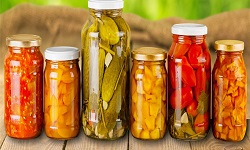
Track 7: Food engineering
Food engineering is a multidisciplinary field that combines science, microbiology and engineering strategies. It aims in providing technical knowledge for cost effective production and commercialization techniques to industries. Energy conservation, waste management and minimizing environmental hazards are also a major concern in Food engineering.
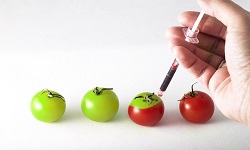
Track 8: Food microbiology
Microorganisms can be either harmful or useful in food processing techniques. Food microbiology is the science which includes the occurrence and significance of bacteria, fungi, protozoa and algae. Food processing involves the removal of pathogenic microorganisms from the food and also the use of microbes in fermentation for converting food to other form. Engineering microbes for secreting important enzymes in food processing is also being carried out in research areas.
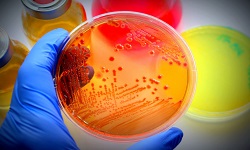
Track 9: Food nanotechnology
Nanotechnology is having an impact on food science by different means, from production till package. Nano based companies are developing nanomaterial that will make a difference in the taste of food and also in the food safety, and the health benefits of food. Recent research has shown the useful applications of nanotechnology for functional foods and nutraceuticals by making use of the new concepts and engineering approaches involved in nanomaterials to for targeted delivery of micronutrients. It allow better encapsulation and release efficiency of the active food ingredients compared to traditional encapsulating agents, and the development of nano-emulsions, liposomes, micelles, biopolymer complexes and cubosomes have led to improved properties for bioactive compounds protection, controlled delivery systems, food matrix integration, and masking undesired flavors.

Track 10: Dairy Technology
Dairy Technology is deals with the processing of milk and its products. This field involves the use of “Technology” to make the dairy products and processing more advanced, hi-tech and useful. It is a component of food technology that specifically deals with the processing, storage, packaging, distribution and transportation of the dairy products like milk, ice-cream, curd etc by implying the science of biochemistry, bacteriology, nutrition to the milk and milk products.
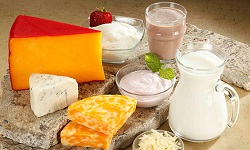
Track 11: Food Immunology
The immune system of the body keeps you healthy by fighting off infections and other hazards to our health. A food allergy reaction occur when your immune system overreacts to a food or a substance in a food, identifying it as a danger and triggering a protective response. Symptoms of a food allergy can range from mild to severe. Just because an initial reaction causes few problems doesn’t mean that all reactions will be similar; a food that triggered only mild symptoms on one occasion may cause more severe symptoms at another time.
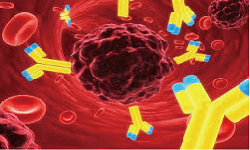
Track 12: Engineered microbes
The application of modern biotechnology to food production presents new opportunities and challenges for human health and development. Recombinant gene technology, the most well-known modern biotechnology, enables plants, animals and microorganisms to be genetically modified (GM) with novel traits beyond what is possible through traditional breeding and selection technologies.

Track 13: Bioprocess Engineering
Bioprocess engineering also, biochemical engineering deals with the design and development of equipment used in industries for various food processing techniques. It is a conglomerate of biology, mathematics and industrial design. It aims in obtaining high yield of end products with better quality. It includes Bioprocess engineering is a specialisation of chemical engineering; it deals with the design and development of equipment and processes for the manufacturing of products such as agriculture, food, feed, pharmaceuticals, nutraceuticals, chemicals and polymers and paper from biological material and treatment of waste water. Expertise in this field is a combination of knowledge in biotechnology and engineering. Bioprocess engineers develop concept technologies in the bioprocess space – anything that takes into account producing a product from biological material such as yeast, fungi, bacteria, algae, viruses, mammalian cells or any type of biological single cell process.
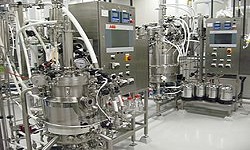
The purpose of kinetics is important in many aspects of food research. Enzymatic, chemical, physical and microbial reactions in foods occur simultaneously during processing and storage, and usually it is a chain of reactions. Optimizing the quality of food in a quantitative way can be done with the proper use of kinetics. Furthermore, the food process engineer needs kinetics in order to optimize processes. In addition, kinetic modeling is also useful for the nutritionist, to study the kinetics of changes during digestion and assimilation in the body (bioavailability).

Track 15: Food chemistry
Food chemistry is the study of chemical process and interaction between the biological and non-biological components present in the food. It is similar to biochemistry that involves carbohydrates, lipids, proteins, water, vitamins, minerals, enzymes, food additives and flavor. It encompasses how food changes during processing techniques and the ways to prevent it from happening. Food chemistry involves the study and development of food additives that can be used to preserve the quality of food or to modify its color, flavor, and taste. It is, thus, closely linked to food processing and preparation techniques.

Track 16: Food synergy
There is evidence that certain components in the foods and beverages we consume like minerals, vitamins and phytochemicals, fiber, and fats interact with each other to give our bodies extra disease protection and a higher level of health. This new nutritional concept is called food synergy. It general it is the interaction of food with body.
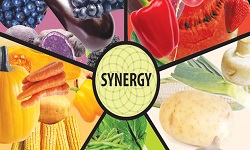
Track 17: Food additives
A food additive is any substance added to food. Legally, the term refers to "any substance the intended use of which results or may reasonably be expected to result directly or indirectly in its becoming a component or otherwise affecting the characteristics of any food." This definition includes any substance used in the production, processing, treatment, packaging, transportation or storage of food. Flavor enhancers are used in savory foods to enhance the existing flavor in the food. Food flavor enhancers are commercially produced in the form of instant soups, frozen dinners and snack foods etc. Flavor enhancers modify flavors in the food without contributing to any significant flavor of their own. Controlled quantities of these are safe but if ingested in large quantities, they may lead to high blood pressure or some allergies.
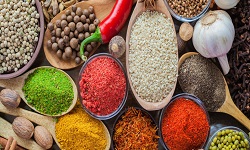
Track 18: Enzymes in food
Enzymes are crucial to your health as they enable your body to break down food components into usable nutrients. Your intestines and pancreas produce a wide variety of enzymes, and certain foods contain these beneficial constituents or contain bacteria that produce them. Certain foods are high in enzymes, too, though they're broken down during digestion. While certain cultures eat high-enzyme foods for the perceived benefit of boosting digestion, there's not much evidence to show that enzymes help. Several high-enzyme foods offer other benefits, though, so they're still worthwhile additions to your diet. Enzymes are also being used in food processing.

Track 19: Nutrition and Nutrition Therapy
It is a science that deals with the process of providing nutrients required by the body for growth and survival. These nutrients can be obtained through food. Our body is also capable of synthesizing some of the nutrients while the others have to be consumed through food. A food should be rich in nutrients in order to meet the requirements of the body. Less nutrition in the body leads to various diseases and hence affects the metabolism of the body. Nutritional Therapy is the application of nutrition science in the promotion of health and is relevant for individuals with chronic conditions, as well as those looking for support to enhance their health and wellbeing.

Track 20: Nutraceuticals
Nutraceuticals is a broad umbrella term that is used to describe any product derived from food sources with extra health benefits in addition to the basic nutritional value found in foods. They can be considered non-specific biological therapies used to promote general well-being, control symptoms and prevent malignant processes. Most often they are grouped in the following categories as dietary supplements, functional food, medicinal food and farmaceuticals.
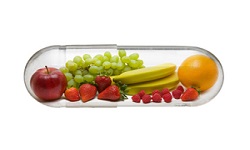
Track 21: Foodborne diseases and treatment
A disease caused by consuming contaminated food or drink. Myriad microbes and toxic substances can contaminate foods. There are more than 250 known foodborne diseases. The majority is infections are caused by bacteria, viruses, and parasites. Other foodborne diseases are essentially poisonings caused by toxins, chemicals contaminating the food. All foodborne microbes and toxins enter the body through the gastrointestinal tract and often cause the first symptoms there.

Track 22: Food and human health
Over consumption or low intake of food can lead to imbalance in the body which will result in serious ailments. Apart from food borne microbes, diseases can also occur because of human lifestyle. Eating food without nutritive values is a junk to our body.

Track 23: Dietetics
Dietetics is the practice of integrating biochemical, physiological, social, and managerial concepts into the science of nutrition to achieve a healthy lifestyle. A degree in dietetics offers challenging and rewarding employment opportunities working in hospitals, long-term care facilities, public health agencies, food industry, research labs and more. Whether administering medical nutrition therapy in a health-care setting or directing food service operations, registered dietitians work toward the prevention and treatment of disease.
Track 24: Food safety and hygiene
Food safety describes the handling, preparation and storage of food preventing it from foodborne diseases. Food safety also includes the quality of the food being produced. Quality standards need to be achieved to make it a better product. It includes a number of routines that should be followed to avoid health hazards. It protects the consumers from various ill effects.
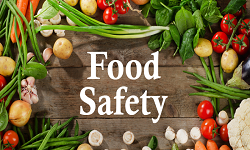
Track 25: Food packaging
Packaging has been defined in many ways. Packaging is the art, science and technology of preparing products for market. It is also can be defined as a product made from any material such as paper, glass, plastic, aluminum and wood that is used for the containment, protection, handling, delivery and presentation of goods from raw to processed goods. Packaging ensures safe delivery of the product to the ultimate consumer in good condition at minimal overall cost. It is a system capable of containing the goods that it remains safe and efficacious within its shelf life.

Track 26: Food quality standards
Food quality is an important food manufacturing requirement, because food consumers are susceptible to any form of contamination that may occur during the manufacturing process. Many consumers also rely on manufacturing and processing standards, particularly to know what ingredients are present, due to dietary, nutritional requirements or medical conditions. Besides ingredient quality, there are also sanitation requirements. It is important to ensure that the food processing environment is as clean as possible in order to produce the safest possible food for the consumer.

Track 27: Food waste management
Food waste is the food that is discarded or left uneaten. In any case, correct definitions are threatening, consistently described on a situational commence. Proficient bodies, including overall affiliations, state governments and secretariats may use their own specific definitions. It is difficult to treat or reuse since it contains irregular measures of sodium salt and clamminess, and is mixed with other waste in the midst of amassing. It is very important situation to reduce the food wastage and make it available to the unavailable before spoilage. Hence food recycling is essential to resolve this issue.
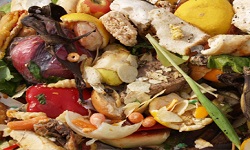
Learn More
FOOD TECHNOLOGY UNIVERSITIES IN EUROPE
Armenian State Agrarian University | Graz University of Technology | University of Natural Resources & Applied Life Sciences | Catholic University of Leuven | Ghent University | University of Food Technologies | University of Ruse | Agricultural University | University of Zagreb | Cyprus University of Technology | College of Food Technology | National Engineering School in Biology | University of Lille | University of Helsinki | University of Turku | Pirkanmaa University of Applied Sciences | Karlsruhe University | Technical University of Munich | Berlin University of Technology | Fulda University | University of Kiel | Humboldt University | Niederrhein University | Agricultural University of Athens | Alexander Technological Institution | University College Cork | University College Dublin | Dublin Institute of Technology | Athlone Institute of Technology | University of Iceland | Bologna University | University of Milan | University of Sassari | University of Foggia | University of Teramo | University of Udine | University of Parma | Kaunas University of Applied Sciences | Hogeschool van Amsterdam | University of Applied Sciences | Norwegian University | University College of South Trondelag | Warsaw University of Life Sciences | Poznan University of Life Sciences | University of Algarve | University of Minho | Dunarea de Jos University | University Stefan cel Mare Suceava Cristina | University of Ljubljana | Slovak University of Agriculture | University of Valencia | University of Navarra | University of Barcelona | Lund University | University of Umeå | University of Uppsala | Ege University | University of Gaziantep | Mersin University | Istanbul Technical University | North Caucasus State Technical University | Czech University | Aarhus Univesity | Royal Veterinary and Agricultural University | University of Copenhagen | Estonian University | University of Tartu | Seinäjoki University | HAMK University | Savonia University | JAMK University | AgroParisTech | National School of Agronomy of Toulouse | University of Compiegne | University of Bonn | University of Gottingen | University of Giessen | Humboldt University | Leibniz University | Martin Luther University | University of Hohenheim | University of Rostock | University of Thrace | University of Thessaly | University of Debrecen | Kaposvár University | Pannon University | Szent István University | Agricultural University of Iceland | Gurteen College | Mountbellew Agricultural College | University of Bologna | University of Perugia | University of Padua | Latvia University | University of Kraków | Rzeszów University | University of Algarve | University of Lisbon | University of Évora | University of Galati | Banat University | University of Belgrade | University of Almería | University of Seville | ETH Zurich | Brern University | Royal Agricultural University | Scotland Rural University | Scottish Agricultural College | Shuttleworth College | University of Reading | Writtle College | University of Seville | Bicton College | Clinterty Agricultural College | Myerscough College | Newton Rigg College | Oaklands College | Plumpton College | Reaseheath College | Shuttleworth College | Sparsholt College Hampshire
FOOD TECHNOLOGY UNIVERSITIES IN USA
University of La Plata | University of Córdoba | University of Rosario | Catholic University of Argentina | University of Lujan | University of Sao Paulo | University of Santa Catarina | University of Northern Rio de Janeiro | Sao Paulo State University | University of Mato Grosso | University of Lavras | University of Minas Gerais | University of Pelotas | University of Santa Maria | University of São Carlos | University of Viçosa | University of Paraná | University of Pernambuco | Tolima University | Red Deer College | University of Saskatchewan | University of Manitoba | University of Guelph | Ridgetown College | Kemptville College | Ontario Agricultural College | Laval University | McGill University | Dalhousie University | Lilongwe University | Auburn University | Angelo State University | California State University | Clemson University | Colorado State University | Cornell University | Delaware Valley University | Fort Valley State University | Iowa State University | Kansas State University | Louisiana State University | Michigan State University | Mississippi State University | Missouri State University | Montana State University | Morehead State University | Murray State University | University of California | University of Idaho | University of Kentucky | University of Maine | University of Maryland | University of Minnesota | University of Nebraska | University of Nevada | University of Rhode Island | University of Wisconsin | Utah State University | Washington State University | West Virginia State University | West Virginia University | Oregon State University | Chapman University | Illinois Institute of Technology | North Carolina State University | Washington State University | University of Florida | The University of Georgia | Framingham State University | Florida State University | Auburn University | University of Memphis | Boston University | Purdue University | Pennsylvania State University | Dominican University | University of Arkansas | Oklahoma State University | Drexel University | University of Wisconsin
FOOD TECHNOLOGY UNIVERSITIES IN ASIA
Anhui Agricultural University | China Agricultural University | Fujian University | Gansu Agricultural University | Huazhong University | Hunan University | Hebei University | Henan University | Inner Mongolia University | Jiangxi University | Nanjing University | Northeast University | Northwest University | Qingdao University | Shandong University | Hirosaki University | Hiroshima University | Hokkaido University | Ibaraki University | Mie University | Miyagi University | Nagoya University | Niigata University | Tokyo University | Kinki University | Tokai University | University College Agroscience | University Malaysia Kelantan | University Putra Malaysia | University Malaysia Sabah | University Malaysia Terengganu | Seoul National University | Korea National College of Agriculture & Fisheries | National Taiwan University | MingDao University | Kasetsart University | Maejo University | Chiang Mai University | Khon Kaen University | Silpakorn University | Suranaree University | Walailak University | Thammasat University | Mahidol University | Asian Institute of Technology | Rangsit University | Nanyang Technological University | Tsinghua University | National University of Singapore | Peking University | King Abdullah University of Science & Technology | Hong Kong University of Science and Technology | National Tsing Hua University | Indian Institute of Science | Indian Institute of Technology Bombay | University of Malaya | Indian Institute of Technology Delhi
FOOD TECHNOLOGY SOCIETIES
Food Drink Europe | Coeliac Society of Ireland | IACSIT Food and Agriculture Society (FAS) | International Society of Beverage Technologists | Society of Food Hygiene and Technology (SOFHT) | UK Food Associations | Safe Foods | Food and Drink Federation | European Association for Food Safety | European Food Safety Authority | European Federation for the Science and Technology of Lipids | Food Chemistry Division of the European Association of Chemical and Molecular Sciences | Institute of Food Science & Technology | Institute of Food Technologists | Gesellschaft Deutscher Lebensmitteltechnologen e.V. | Korean Society of Food Science and Technology | American Society for Nutrition (ASN) | The Nutrition Society of Australia | Austrian Nutrition Society (Österreichische Gesellschaft für Ernährung) | Belgian Nutrition Society | British Nutrition Society | Cyprus Dietetic & Nutrition Association | Danish Nutrition Society (Selskabet for Ernæringsforskning) | Federation of Asian Nutrition Societies (FANS) | International Wine & Food Society (IW&FS) | Food & Beverage Association of America | Association of Food Industry | National Food Product Associations | Indian Beverage Association | Chocolate Society - University of Sydney Union | Chinese American Food Society | American Beverage Association | Food and Beverage Trade Associations | National Restaurant Association, Grocery Manufacturers Association | National Food Processors Association | National Food Processors Association, Food Industry Asia | Asia Pacific Food Industry | ASEAN Food and Beverage Alliance | Singapore Food Manufacturers Association | Herbal Beverages - Herb Society of America | Food and Beverage Trade Associations | Food & Beverage Association of America | American Society for Nutrition | Food and Agricultural Organization
FOOD JOURNALS
Journal of Food Science | Lebensmittel-Wissenschaft & Technologie | Trends in Food Science and Technology| Molecular Nutrition & Food Research | Innovative Food Science and Emerging Technologies | Journal of Food Safety | Critical Reviews in Food Science and Nutrition | Food and Bioprocess Technology | Journal of Food Engineering | Food Science and Technology International | Journal of Agricultural and Food Chemistry | Journal of Food Processing and Preservation | Food and Chemical Toxicology | Journal of the Science of Food and Agriculture | International Journal of Food Sciences and Nutrition | Journal of Food Science and Technology | Journal of Food Process Engineering | Food Structure | Food and Nutrition Bulletin | Journal of Food Quality | Journal of the Academy of Nutrition and Dietetics | Journal of Food Composition and Analysis | Food Quality and Preference | Analytical Methods | Innovative Food Science and Emerging Technologies | Food and Bioprocess Technology | Food Science and Technology International | Critical Reviews in Food Science and Nutrition | Journal of Nutrition | The American Journal of Clinical Nutrition | International Journal of Food Sciences and Nutrition | Journal of the Academy of Nutrition and Dietetics | Public Health Nutrition | Journal of Food Science | British Journal of Nutrition | Molecular Nutrition & Food Research | Nutrition in Clinical Practice | European Journal of Clinical Nutrition| Nutrition and Health | Journal of Nutritional Biochemistry | Nutrition Reviews | Food and Nutrition Bulletin
FOOD RELATED CONFERENCES IN USA
19th Global Summit on Food & Beverages September 12-13, 2018 Richmond, Virginia, USA | 2nd International Conference on Food Science, Nutrition & Probiotics August 23-25, 2018 Las Vegas USA | International Conference on Food Technology and Nutrition Science June 26-27, 2017 USA | 2nd World Summit and Expo on Food Technology & Probiotics November 20-22 2017 LAS VEGAS, USA | 20th International Conference on Food Science and Health (ICFSH) - Sep 28 - 29, 2018 Los Angeles, USA | International Conference on Nutrition September 03-05, 2018 in Las vegas, USA | IAFP 2018 July 21 – 24 2018, Salt Lake City, Utah | 19th International Conference on Global Food Security March 9-10, Miami, Florida, United States | 14th International Conference on Diabetic Nutrition July 27-28, 2017 Chicago, USA | 21st International Congress of Nutrition October 22-27, Buenos Aires, Argentina | FFC's 21st International Conference and Expo on Functional Foods March 25-26, 2017 in San Diego, USA | 21st International Conference on Food & Nutrition July 25-26, 2018 Vancouver, Canada |
FOOD RELATED CONFERENCES IN EUROPE
21st International Conference on Food Technology & Processing October 02-04, 2018 London, UK | INTERNATIONAL CONFERENCE ON FOOD PROCESSING & TECHNOLOGY September 17- 19, 2018, PARIS , FRANCE | Biopolymers 2017 - Key Ingredients for the Food Transition November 29- December 2, 2017 in Nantes, France | 20th International Conference on Food Science, Nutrition and Public Health January 22 - 23, 2018 Amsterdam, Netherlands | World Congress on Advanced Food Science and Technology June 18-19, 2018 London, UK | 5th International Conference on Food Oral Processing July 1-4, 2018 in Birmingham, UK | 11th Baltic Conference on Food Science and Technology "FOODBALT 2017" April 27-28, 2017 in Jelgava, Latvia | 19th International Conference on Food Science and Nutrition March 26-27, Madrid, Spain | 11th International Conference on Molecular Nutrition & Dietetics June 12-14, Rome, Italy | 12th International Congress on Nutritional Epidemiology and Malnutrition July 17-19, 2017 Munich, Germany | XV International Conference on Food Science and Biotechnology October 4-5, Lisbon Portugal | ICBFS 2018 9th International Conference on Biotechnology and Food Science April 9- 11, 2018 Copenhagen, Denmark | Euro-Global Conference on Food Science, Agronomy and Technology June 07-09, 2018 at Rome, Italy | 20th International Conference on Food Structure and Preservation January 15-16, 2018 Zürich, Switzerland | 5TH INTERNATIONAL ISEKI_FOOD CONFERENCE 2018 July 3-5, 2018 in Stuttgart, Germany | Innovations in Food Science and Human Nutrition September 13-15, 2018 Rome, Italy
FOOD RELATED CONFERENCES IN ASIA
9th International Conference on Food Science & Technology September 19-20, 2018 Hong Kong | International Conference on Food Science & Technology Moscow, Russia June 25-27, 2018 | XV International Conference on Food Security and Nutrition March 8-9, Pattaya, Thailand | First Southeast Asian Public Health Nutrition Conference May 15-17 Kuala Lumpur, Malaysia | 19th International Conference on Behavioral Nutrition and Physical Activity August 30-31, Bangkok, Thailand | Advances in Food Science & Nutrition March 26-27, 2018 Online conference | 20th International Conference on Nutrition, Food Science and Technology 16 - 17 April, 2018 Dubai, UAE | 19th World Congress of Food Science & Technology October 23-27, 2018 Mumbai, India
FOOD TECHNOLOGY JOB OPPORTUNITIES
Higher Scientific Officer Food Standards Agency | Product development technologist Innocent | Food Technologist Blue Spark | KTP Associate - Bioprocess Development Scientist University College | Research Scientist Animal and Plant Health Agency | New Product Development Technologist (NPD Technologist) RoS International Ltd | Safety and Environment Manager Unilever | Head of Technical - Food Manufacturing Real Staffing | Customer Compliance Manager (Food Technology) Ocado | Regulatory Associate Perrigo | Innovation Specialist - 12 Month FTC Starbucks | Food Safety and Quality Analyst Whole Foods Market | R&D Technologist Puratos | Regional Food & Safety Specialist Job BJ's Wholesale Club, Inc. | Food Scientist Hain Celestial Group | Associate, Product Validation Hello Fresh | Food Safety Manager Sysco | Consumer Safety Officer Department of Health And Human Services | Research Technician (Caldwell, ID) J. R. Simplot Company | Laboratory Supervisor In-N-Out Burger | Microbiologist (Brewing) – Rochester North American Breweries | Intern- Food & Beverage Formulation Amway Inc | Global R&D Flavorist – Savory Givaudan | Associate Scientist - Product Development Leprino Foods | Extension Specialist for Food and Nutrition Delaware State University | Sustainable Food Policy Advocate Natural Resources Defense Council | Scientist IV, Ingredient Technology The Coca-Cola Company

